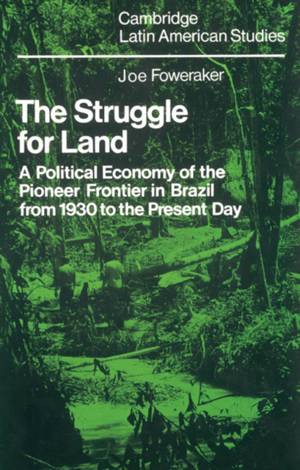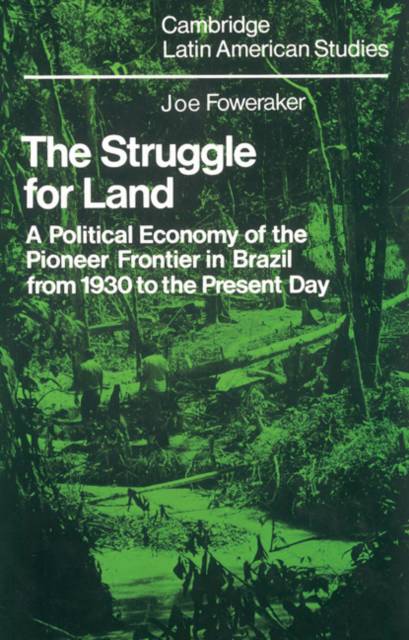
- Afhalen na 1 uur in een winkel met voorraad
- Gratis thuislevering in België vanaf € 30
- Ruim aanbod met 7 miljoen producten
- Afhalen na 1 uur in een winkel met voorraad
- Gratis thuislevering in België vanaf € 30
- Ruim aanbod met 7 miljoen producten
Zoeken
The Struggle for Land
A Political Economy of the Pioneer Frontier in Brazil from 1930 to the Present Day
Joe Foweraker, J Foweraker
€ 67,95
+ 135 punten
Omschrijving
Widespread violence, legal chicanery and ruthless profiteering have come to characterise the expansion of the agricultural frontier in Brazil. With the advance of this frontier, the pioneering peasants, on the one hand, and large landowners and large economic enterprise, on the other, have become locked in an increasingly bitter struggle for land. In his book, Joe Foweraker draws on extensive empirical research to demonstrate the dimensions and dynamics of the struggle. It is his contention that the process can only be understood in relation to the patterns of economic accumulation in the national society and to the typical forms of political intervention on the frontier. In this way the argument moves beyond descriptive, moral or realpolitik explanations of the political violence and bureaucratic malpractice on the frontier, and integrates these elements into a theoretical account of accumulation and class struggle on the frontier, and of the characteristic mediations of this struggle.
Specificaties
Betrokkenen
- Auteur(s):
- Uitgeverij:
Inhoud
- Aantal bladzijden:
- 288
- Taal:
- Engels
- Reeks:
- Reeksnummer:
- nr. 39
Eigenschappen
- Productcode (EAN):
- 9780521526005
- Verschijningsdatum:
- 15/08/2002
- Uitvoering:
- Paperback
- Formaat:
- Trade paperback (VS)
- Afmetingen:
- 140 mm x 216 mm
- Gewicht:
- 367 g

Alleen bij Standaard Boekhandel
+ 135 punten op je klantenkaart van Standaard Boekhandel
Beoordelingen
We publiceren alleen reviews die voldoen aan de voorwaarden voor reviews. Bekijk onze voorwaarden voor reviews.











